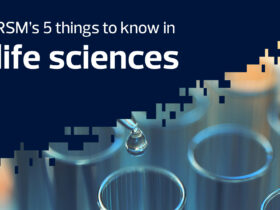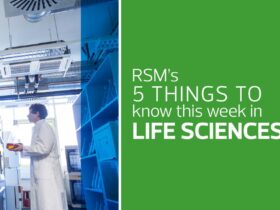This week we highlight new guidance from the U.S. Food and Drug Administration on ensuring that clinical trials are inclusive, Biogen’s challenges with marketing its new Alzheimer’s drug, a COVID-19 breathalyzer and how a new type of T cell could allow better targeting of solid tumors. Finally, we look at the newest research from IQVIA on where they expect life sciences and health care to go in the next few years. Each week we highlight five things you need to know in the life sciences industry. Here’s the latest.
The FDA has asked that those companies designing and managing clinical trials include plans that identify how they will encourage participation by populations traditionally underrepresented in trials. As an example, Black Americans make up 13% of the U.S. population but only 5% of trials. These are guidelines for now and do not take the form of new requirements in trials, but indicate an additional step in ensuring that trial participants are representative of the patient populations the drugs hope to one day target.
Following its controversial 2021 U.S. regulatory approval, Biogen has now pulled its European Union marketing application for its Alzheimer’s drug aducanumab. Citing inadequacy of data based on early conversations with the European Medicines Agency, the company still believes that upcoming readouts will support the safety and efficacy of aducanumab. While some analysts believe there is still a chance for the drug to capture a significant market opportunity, the company has a steep road ahead.
The FDA has granted emergency-use authorization for the first portable COVID-19 breath sample testing diagnostic device. Developed by InspectIR Systems, the device can deliver a test result within three minutes. In a study of more than 2,400 people, the device accurately predicted negative samples 99.3% and positive samples 91.2% of the time. The company said it was capable of producing 100 devices a week and each device can evaluate approximately 160 samples a day.
Since many solid tumors show only limited mutations compared to the surrounding tissue, targeting them using T cell-based therapies can be challenging. Treating these types of tumors often require additional processes to trigger a reaction. However, this new class of T cells that have been identified allow for targeting solid tumors directly and promise to simplify treatment and expand the classes of cancers that can be targeted.
IQVIA recently published its 2022 Use of Medicines in the U.S. report, which includes an outlook on usage and spending through 2026. The report provides insights on the continued disruption that the pandemic has had on the population’s engagement with health services, increased overall spending on medications while costs per prescription remain flat, and the continued pull back on elective procedures. While they expect spending and health care utilization to normalize through 2023, these are important trends for life sciences leaders to be aware of as they plan for existing product demand, new product launches, and potential moves on the pricing and insurance coverage front.
For more on the life sciences industry, check out our additional insights.





Leave a Reply